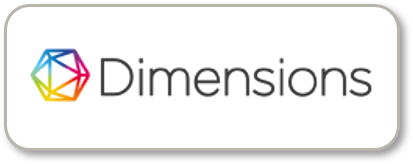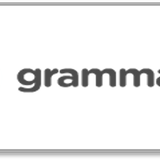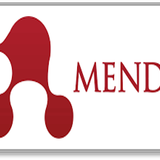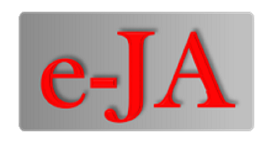Impact Of Interactive Control In Improving Academics' Performance: Mediating Role Of Fairness
DOI:
https://doi.org/10.24912/ja.v28i1.1769Abstract
This study aims to empirically examine the direct and indirect effects of interactive control on performance by analysing the role of justice as an intervening variable. This research uses a survey approach by distributing questionnaires directly or online. The research sample obtained was 383 academics at universities throughout Indonesia. Data analysis was carried out using structural equation modelling. The results showed that interactive control has no direct effect on performance. However, interactive control indirectly affects academic performance through fairness. This suggests the importance of improving fairness in effective performance measurement to improve academic performance. The novelty of this study lies in equity as an intervening variable in the relationship between interactive control and performance. The findings of this study provide practical insights for higher education management to implement an interactive control approach that can increase the sense of fairness towards implementing performance measurement systems to impact academic performance positively.
References
Ali, F., Rasoolimanesh, S. M., Sarstedt, M., Ringle, C. M., & Ryu, K. (2018). An Assessment Of Partial Least Squares Structural Equation Modelling (PLS-SEM) in hospitality research. International journal of contemporary hospitality management, 30(1), 514-538. https://doi.org/10.1108/IJCHM-10-2016-0568.
Alzahrani, B., Bahaitham, H., Andejany, M., & Elshennawy, A. (2021). How Ready Is Higher Education For Quality 4.0 Transformation According To The LNS Research Framework? Sustainability, 13(9), 5169. https://doi.org/10.3390/su13095169.
Anggis, E. V. (2022). Analisis Mutu Beban Kinerja Dosen Bidang Penelitian Berbasis Knowledge Conversion. Jurnal Penjaminan Mutu, 8(02), 183-191. https://doi.org/10.25078/jpm.v8i02.1019.
Antunes, H. d. J. G., & Pinheiro, P. G. (2020). Linking Knowledge Management, Organisational Learning And Memory. Journal of Innovation & Knowledge, 5(2), 140–149. https://doi.org/10.1016/j.jik.2019.04.002.
Asiah, N., & Sabaruddinsah, S. (2021). Pengaruh Kepemimpinan Transformasional Dan Management Control System Serta Budaya Organisasi Terhadap Kinerja Aparatur Pemerintah Daerah. Jurnal Akuntansi Bisnis Pelita Bangsa, 6(01), 34-46. https://doi.org/10.37366/akubis.v6i01.225.
Ayudia, S., Nadeak, B., & Suyaman, D. J. (2021). Evaluasi Mutu Pelayanan Puskesmas Terakreditasi Berdasarkan Indeks Kepuasan Masyarakat Di Kabupaten Karawang. Syntax Literate; Jurnal Ilmiah Indonesia, 6(6), 3037-3048. https://doi.org/10.36418/syntax-literate.v6i6.2340.
Baird, K., Tung, A., & Su, S. (2020). Employee Empowerment, Performance Appraisal Quality And Performance. Journal of Management Control, 31, 451-474. https://doi.org/10.1007/s00187-020-00307-y.
Bellora-Bienengräber, L., Derfuss, K., & Endrikat, J. (2023). Taking Stock Of Research On The Levers Of Control With Meta-Analytic Methods: Stylised Facts And Boundary Conditions. Accounting, Organisations and Society, 106, 101414. https://doi.org/10.1016/j.aos.2022.101414.
Bisbe, J., Kruis, A.-M., & Madini, P. (2019). Coercive, Enabling, Diagnostic, And Interactive Control: Untangling The Threads Of Their Connections. Journal of Accounting Literature, 43(1), 124-144. https://doi.org/10.1016/j.acclit.2019.10.001.
Biswas, S. S. N., Akroyd, C., & Sawabe, N. (2023). Management Control Systems Affect The Micro-Level Processes Of Product Innovation. Journal of Accounting & Organizational Change, 19(2), 326-350. https://doi.org/10.1108/JAOC-07-2021-0093.
Colquitt, J. A., Hill, E. T., & De Cremer, D. (2023). Forever Focused On Fairness: 75 Years Of Organisational Justice In Personnel Psychology. Personnel Psychology, 76(2), 413-435. https://doi.org/10.1111/peps.12556.
Dash, G., & Paul, J. (2021). CB-SEM vs PLS-SEM Methods For Research In Social Sciences And Technology Forecasting. Technological Forecasting and Social Change, 173, 121092. https://doi.org/10.1016/j.techfore.2021.121092.
Deviastri, L., & Sekarsari, M. (2020). The Effect Of Belief System Implementation And Interactive Control System On Economic Performance With Environmental Performance As Moderator. Jurnal Orientasi Bisnis dan Entrepreneurship (JOBS), 1(1), 66-92. https://doi.org/10.33476/jobs.v1i1.1311.
Feder, M., & Weißenberger, B. E. (2021). Towards A Holistic View of CSR-Related Management Control Systems In German Companies: Determinants And Corporate Performance Effects. Journal of Cleaner Production, 294, 126084. https://doi.org/10.1016/j.jclepro.2021.126084.
Hair, J. F., Risher, J. J., Sarstedt, M., & Ringle, C. M. (2019). When To Use And How To Report The Results Of PLS-SEM. European Business Review, 31(1), 2-24. https://doi.org/10.1108/EBR-11-2018-0203.
Hair Jr, J. F., Hult, G. T. M., Ringle, C. M., Sarstedt, M., Danks, N. P., Ray, S., Hair, J. F., Hult, G. T. M., Ringle, C. M., & Sarstedt, M. (2021). An Introduction To Structural Equation Modelling. Partial Least Squares Structural Equation Modelling (PLS-SEM) using R: a workbook, 1-29. https://doi.org/10.1007/978-3-030-80519-7.
Hair Jr, J. F., & Sarstedt, M. (2021). Data, Measurement, And Causal Inferences In Machine Learning: Opportunities And Challenges For Marketing. Journal of Marketing Theory and Practice, 29(1), 65-77. https://doi.org/10.1080/10696679.2020.1860683.
Husni, M., Damayanti, R. A., & Indrijawati, A. (2023). The Role Of The Village Government Performance And Transparency In Influencing Village Public Trust. Journal of Accounting and Investment, 24(2), 450-461. https://doi.org/10.18196/jai.v24i2.17114.
Ifenthaler, D., & Yau, J. Y.-K. (2020). Utilising Learning Analytics To Support Study Success In Higher Education: A Systematic Review. Educational Technology Research and Development, 68, 1961-1990. https://doi.org/10.1007/s11423-020-09788-z.
Jolanda, V., & Budianto, Y. (2017). Interactive Control System Dalam Implementasi Strategi Penyelesaian Masalah Perusahaan. Jurnal Ilmiah Bisnis dan Ekonomi Asia, 11(2), 59-65. https://doi.org/10.32812/jibeka.v11i2.48.
Kadarisman, M., Wijayanto, A. W., & Sakti, A. D. (2022). Government Agencies’ Readiness Evaluation Towards Industry 4.0 And Society 5.0 In Indonesia. Social Sciences, 11(8), 331. https://doi.org/10.3390/socsci11080331.
Kang, E., Kim, M. Y., Lipsey, K. L., & Foster, E. R. (2022). Person-Centered Goal Setting: A Systematic Review Of Intervention Components And Level Of Active Engagement In Rehabilitation Goal-Setting Interventions. Archives of physical medicine and rehabilitation, 103(1), 121–130. e123. https://doi.org/10.1016/j.apmr.2021.06.025.
Koivisto, J., & Hamari, J. (2019). The Rise Of Motivational Information Systems: A Review Of Gamification Research. International Journal of Information Management, 45, 191-210. https://doi.org/10.1016/j.ijinfomgt.2018.10.013.
Kominis, G., Dudau, A., Favotto, A., & Gunn, D. (2022). Risk Governance Through Public Sector Interactive Control Systems: The Intricacies Of Turning Immeasurable Uncertainties Into Manageable Risks. Public Money & Management, 42(6), 379-387. https://doi.org/10.1080/09540962.2021.1965729.
Krath, J., Schürmann, L., & Von Korflesch, H. F. (2021). Revealing The Theoretical Basis Of Gamification: A Systematic Review And Analysis Of Theory In Research On Gamification, Serious Games And Game-Based Learning. Computers in Human Behavior, 125, 106963. https://doi.org/10.1016/j.chb.2021.106963.
Kuncoro, F. W., & Safrizal, H. B. A. (2023). Strategies For Improving The Creative Work Environment Through Managing The Physical And Psychological Environments Of Employees: Literature Study. Indonesian Journal of Contemporary Multidisciplinary Research, 2(4), 539-558. https://doi.org/10.55927/modern.v2i4.4869.
Lee, C.C., He, Z.W., & Yuan, Z. (2023). A Pathway To Sustainable Development: Digitisation And Green Productivity. Energy Economics, 124, 106772. https://doi.org/10.1016/j.eneco.2023.106772.
Lince, N. E. (2023). Fokuskan Perhatian Pada Peningkatan Kualitas Dosen. https://www.kompas.id/baca/humaniora/2023/04/14/fokuskan-peningkatan-kualitas-dosen.
Locke, E. A., & Latham, G. P. (2019). The Development Of Goal Setting Theory: A Half-Century Retrospective. Motivation Science, 5(2), 93. https://doi.org/10.1037/mot0000127.
Mahama, H., & Wang, Z. (2023). Impact Of The Interactive And Diagnostic Uses Of Performance Measurement Systems On Procedural Fairness Perception, Cooperation And Performance In Supply Alliances. Accounting & Finance. https://doi.org/10.1111/acfi.13046.
Matsuo, M., Matsuo, T., & Arai, K. (2021). The Influence Of An Interactive Use Of Management Control On Individual Performance: Mediating Roles Of Psychological Empowerment And Proactive Behavior. Journal of Accounting & Organizational Change, 17(2), 263-281. https://doi.org/10.1108/JAOC-06-2020-0079.
Muller-Stewens, B., Widener, S. K., Möller, K., & Steinmann, J.-C. (2020). The Role Of Diagnostic And Interactive Control Uses In Innovation. Accounting, Organisations and Society, 80, 101078. https://doi.org/10.1016/j.aos.2019.101078.
Munaty, S., Dandono, Y. R., & Setiasih, S. (2022). The Effect Of Recruitment, Selection And Training Process On Employee Performance. International Journal of Management and Digital Business, 1(1), 37-51. https://doi.org/10.54099/ijmdb.v1i1.331.
Muttaqin, G. F., & Mulyasari, W. (2018). Financial Accountability: Organisational Performance Improvement Through Culture Control And Contractibility. Jurnal Akuntansi, 22(2), 210-221. https://doi.org/10.24912/ja.v22i2.348.
Ntim, C. G., Soobaroyen, T., & Broad, M. J. (2017). Governance Structures, Voluntary Disclosures And Public Accountability: The Case Of U.K. Higher Education Institutions. Accounting, Auditing & Accountability Journal, 30(1), 65-118. https://doi.org/10.1108/AAAJ-10-2014-1842.
Osma, B. G., Gomez-Conde, J., & de las Heras, E. (2018). Debt Pressure And Interactive Use Of Control Systems: Effects On Cost Of Debt. Management Accounting Research, 40, 27-46. https://doi.org/10.1016/j.mar.2017.10.001.
Parwoto, P., & Halim, A. (2020). The Effects Of Organisational And Political Factors On The Development Of Performance Measurement System (PMS) Of Local Government Institutions. Journal of Accounting and Investment, 1(2), 217-239. https://doi.org/10.18196/jai.2102146.
Pilonato, S., & Monfardini, P. (2020). Performance Measurement Systems In Higher Education: How Levers Of Control Reveal The Ambiguities Of Reforms. The British Accounting Review, 52(3), 100908. https://doi.org/10.1016/j.bar.2020.100908.
Pudjiarti, E., & Darmanto, S. (2020). Interactive Control Capability, Effective Organisational Learning And Firm Performance: An Empirical Study Of Milling And Metal Industry In Tegal. Management Science Letters, 10(3), 575-584. https://doi.org/10.5267/j.msl.2019.9.023.
Ridwan, M. (2019). Faktor-Faktor Yang Mempengaruhi Kinerja Organisasi Sektor Publik. 222–241. https://doi.org/10.35448/jrat.v12i2.6164
Shmueli, G., Sarstedt, M., Hair, J. F., Cheah, J.-H., Ting, H., Vaithilingam, S., & Ringle, C. M. (2019). Predictive Model Assessment In PLS-SEM: Guidelines For Using Plspredict. European Journal Of Marketing, 53(11), 2322-2347. https://doi.org/10.1108/EJM-02-2019-0189.
Sibanda, K., & Grobler, A. (2023). Spiritual Leadership Within The Ambit Of African Management Philosophies Using Interactive Qualitative Analysis. Acta Commercii, 23(1), 1-11. https://doi.org/10.4102/ac.v23i1.1069.
Siregar, T. (2020). The Effect Of Belief System Implementation And Interactive Control System On Economic Performance With Environmental Performance As Moderator. International Journal of Contemporary Accounting, 2(2). https://doi.org/10.25105/ijca.v2i2.7367.
Su, S. X., Baird, K., & Nuhu, N. (2022). Controllability Of Performance Measures And Managerial Performance: The Mediating Role Of Fairness. Meditari Accountancy Research, 30(2), 313–341. https://doi.org/10.1108/MEDAR-07-2020-0957.
Tan, A. B., van Dun, D. H., & Wilderom, C. P. (2023). Lean Innovation Training And Transformational Leadership For Employee Creative Role Identity And Innovative Work Behavior In A Public Service Organisation. International Journal of Lean Six Sigma. https://doi.org/10.1108/IJLSS-06-2022-0126.
Tehseen, S., Ramayah, T., & Sajilan, S. (2017). Testing And Controlling For Common Method Variance: A Review Of Available Methods. Journal of Management Sciences, 4(2), 142-168. https://doi.org/10.20547/jms.2014.1704202.
Van Veen-Dirks, P. M., Leliveld, M. C., & Kaufmann, W. (2021). The Effect Of Enabling Versus Coercive Performance Measurement Systems On Procedural Fairness And Red Tape. Journal of Management Control, 32(2), 269–294. https://doi.org/10.1007/s00187-021-00316-5.
Zhang, L., & Yu, W. (2020). Effects Of The Interactive Use Of Performance Measurement Systems On Job Performance: Mediation Effect Of Organisational Learning. Frontiers in Psychology, 10, 3059. https://doi.org/10.3389/fpsyg.2019.03059.
Downloads
Published
How to Cite
Issue
Section
License
Copyright (c) 2024 Jurnal Akuntansi

This work is licensed under a Creative Commons Attribution-NonCommercial-ShareAlike 4.0 International License.
This journal provides immediate open access to its content on the principle that making research freely available to the public supports a greater global exchange of knowledge.

This work is licensed under a Creative Commons Attribution-NonCommercial-ShareAlike 4.0 International License



















